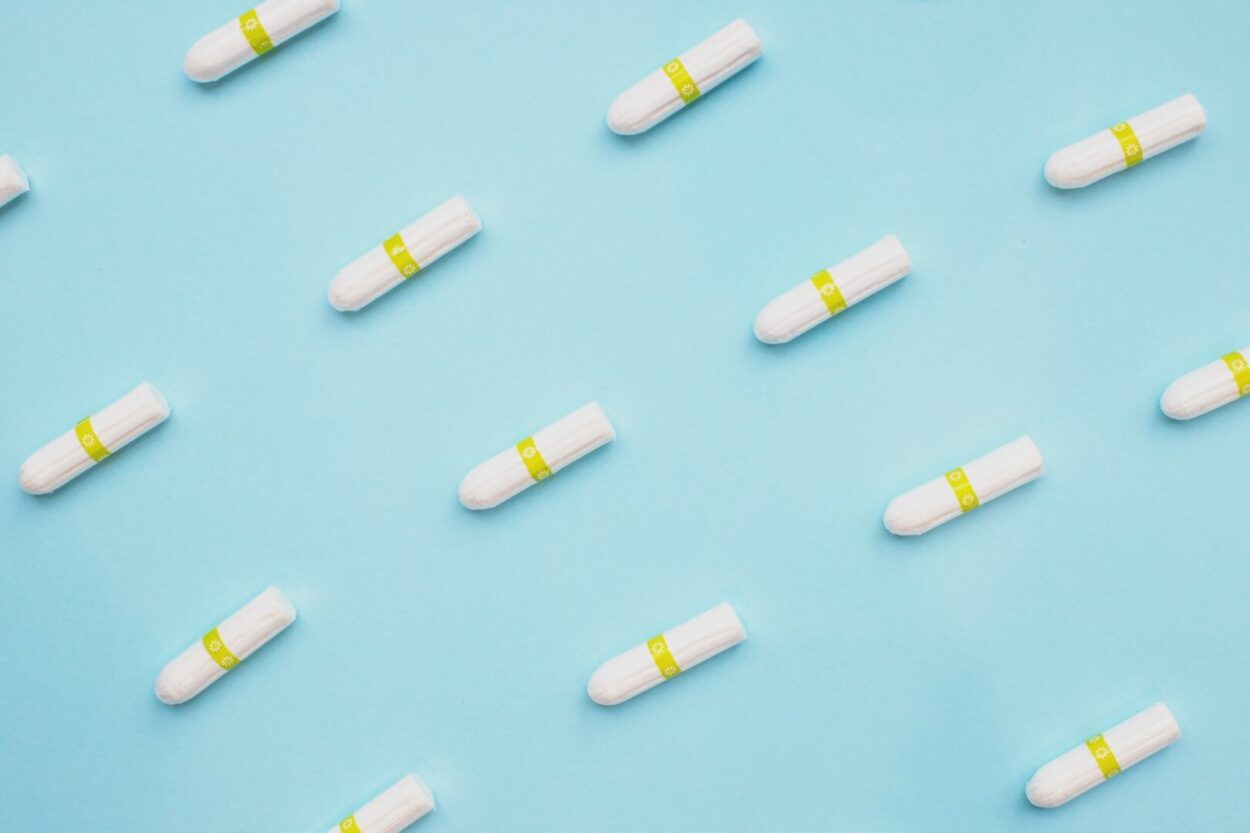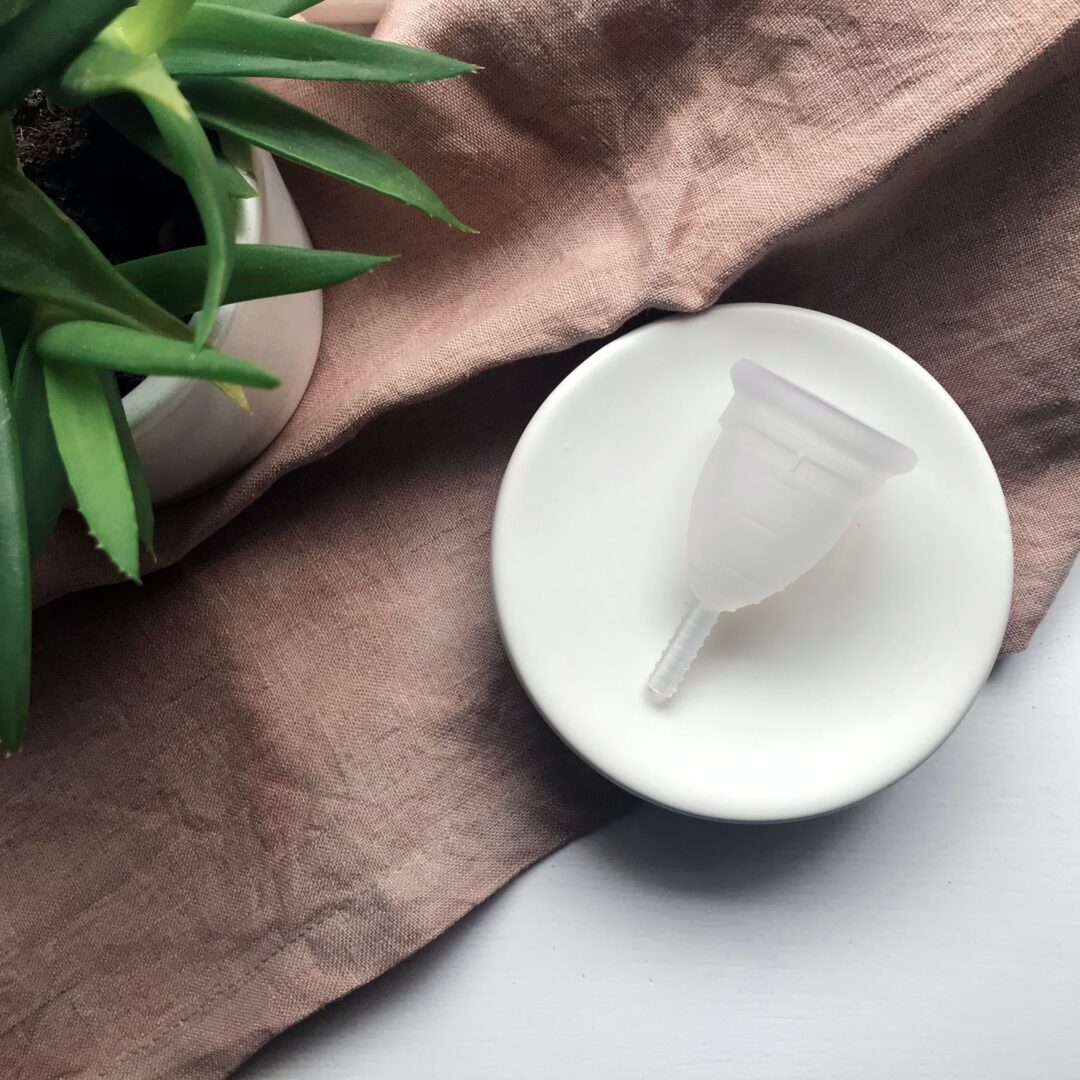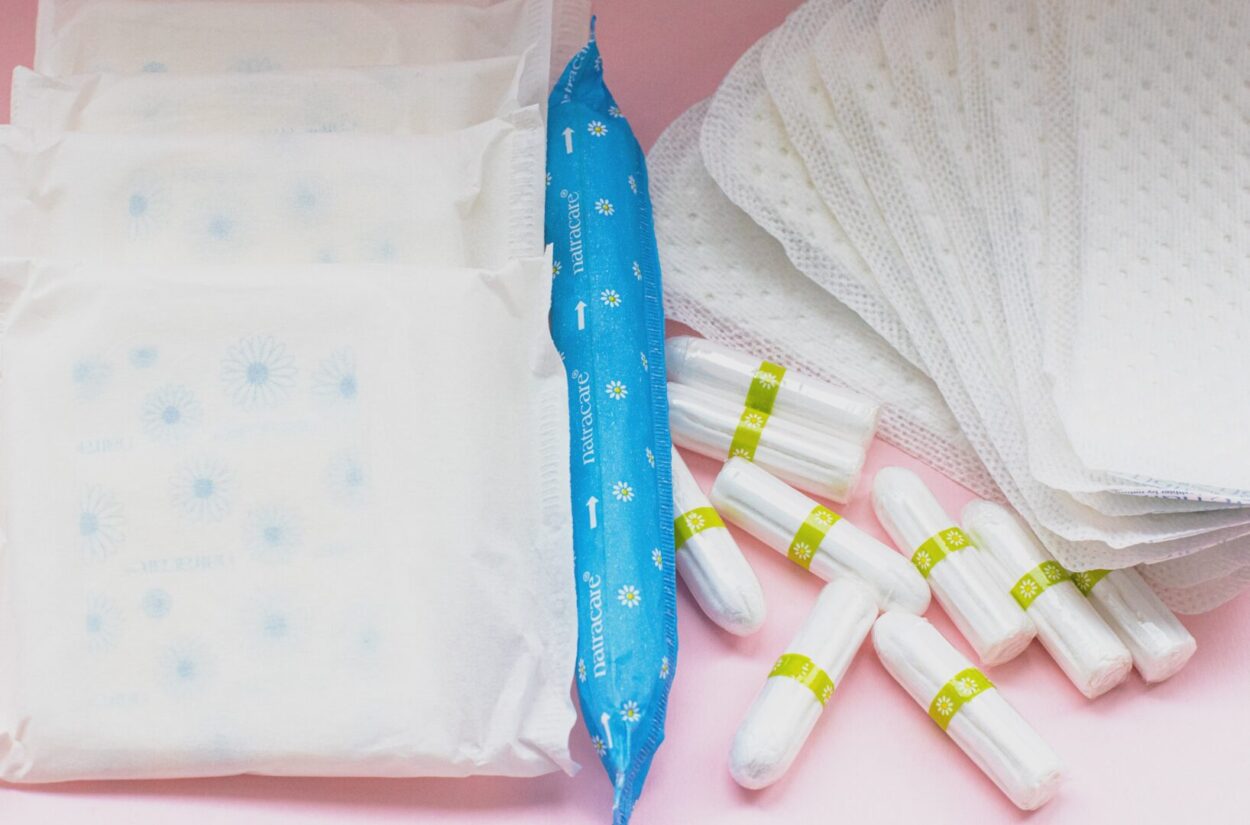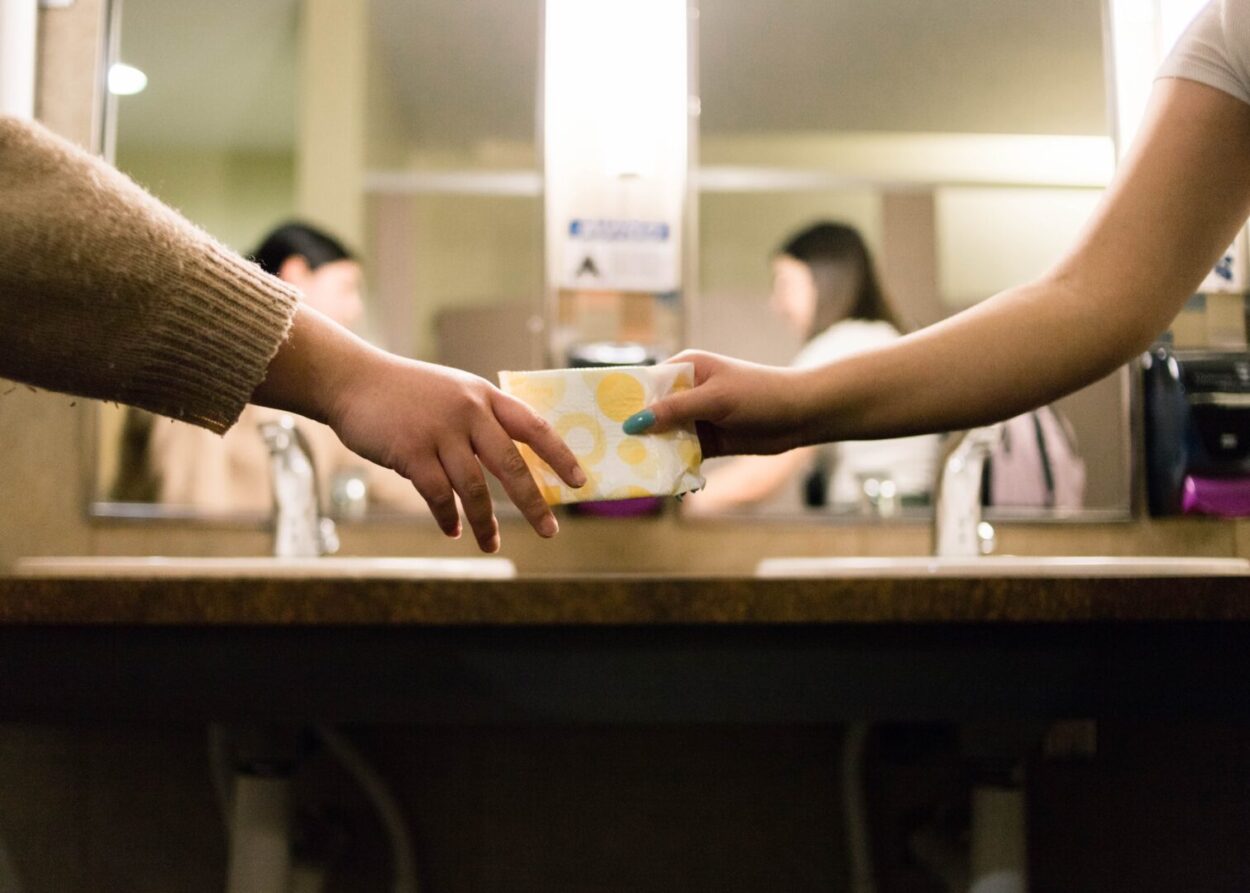Jasmine Birtles
Your money-making expert. Financial journalist, TV and radio personality.


Period poverty impacts women, girls and people who menstruate across the world. Access to menstrual products, safe, hygienic spaces in which to use them, and the right to manage menstruation without shame or stigma, is essential for anyone who menstruates.
As the cost of living crisis tightens, the number of google searches for ‘free period products’ has reached 22,500 in just three months. Furthermore, 11% of people in the UK who have periods are already having to go without the necessary sanitary items due to the crisis, with another 3 in 5 people saying they may soon have to decide between hygiene essentials and other necessities such as paying bills or buying food.
ActionAid UK state that “for many, this is not a reality. This is not just a potential health risk – it can also mean girls’ education, well-being, and sometimes entire lives are affected.
That’s why we work with women and girls, community leaders, men and boys, schools and governments to help end period poverty around the world – once and for all”.
Period poverty is a form of poverty experienced than far more people than many people realise. Periods cost money that isn’t just limited to sanitary pads and tampons. Periods involve other expenses like painkillers, toiletries and new underwear to counter effects of menstruation.
The ‘tampon tax’ as it was named was stopped last year in the UK but that tax reduction had already been implemented by some major supermarkets, so it didn’t necessarily mean savings for customers.
However, here some of the ways that do exist to help:
Watch out for promotions on some brands when there’s a push to sell certain products. You may bag some freebies.
Many people have preferred brands, but if there’s not much of a discernible difference from your usual brand and the supermarket brand, try going for the cheaper option and saving some money.
With periods comes pain, and many may not be aware that own-brand painkillers are super cheap, with pills like ibuprofen and paracetamol available for as little as 39p a box, rather than spending a few quid on a brand name. Remember that you can only buy two boxes of painkillers per person.

Some women find reusable alternatives to be way more effective. Menstrual cups, menstrual underwear and reusable sanitary pads are all designed to be comfy and absorbent as possible. Plus, you’ll save a lot of money without having to re-buy the same products every month.
Sadly, the NHS are not set up to provide free basic sanitary products unless you’re staying in hospital, and thus ‘period poverty’ does affect many. In which case, try…
Foodbanks can offer you free sanitary products. Generally, but not at all food banks if they’re independent, you need to be referred to a foodbank by a doctor, health visitor, school or social worker (ask at your local CAB). You’ll be eligible if you’re ill or have had financial setbacks.

Several of the UK’s leading supermarkets have their own schemes to offer free help.
Morrisons have assured customers that I’d they need an emergency period pack for a quick solution, they can ask a member of staff for Sandy, or say they’re picking up a package for Sandy.
Lidl Ireland has partnered with homeless charity Simon Community and Homeless Period Ireland to provide free pads and tampons to adults and children, who can sign up for free monthly coupons through the Lidl Plus app, which will be distributed from May 3.
Superdrug works closely with poverty charity, Beauty Banks, which operates on the belief that being clean is a basic human right. They’re working to reduce hygiene poverty and extend access to menstrual products to those who need them. They have donation points in over 100 Superdrug stores across the UK.
ASDA, the Co-op, and Waitrose are brand partners and supporters of Hey Girls UK, a period brand who have produced a line of chlorine and bleach-free, environmentally-friendly period products, the purchase of which supports others in need around the UK.
The company has donated 14.9 million period products since its inception. Boots, while not currently offering free help, is a brand partner of The Hygiene Bank. They supply everything from period pads and tampons to shampoo and deodorant. There are product drop-off points in big Boots retailers and by donating, you’ll be giving people the products they need that often aren’t donated to food banks.
As with sexual heath issues, most educational establishments are set up to help those in need of free sanitary products relating to periods, so if you’re in education, ask at the nurse’s station or medical centre.

Access to free support is crucial
94% of secondary schools now provide free period products to students: 13,822 individual organisations (68% of all those eligible) have ordered free period products since the scheme began in January 2020, helping reduce stigma around menstruation. This includes 94% of secondary schools and 90% of post 16 organisations.
The free period product scheme is for all young people in English state schools and 16-19 organisations, providing products to those who need them, including students who cannot afford products, have forgotten them, or come on their period unexpectedly.
The government is expected to announce plans in the coming weeks for the future of the scheme from academic year 2022/23.
The period product scheme is available to all state maintained schools and 16 to 19 education organisations in England. It provides free period products to learners who need them in their place of study. The scheme is available for organisations to order until July 2022.
Girls, non-binary and transgender learners who have periods may also access this scheme. More here.
Always are launching a new donation drive. It gives free period products to UK Youth, a nationwide network of youth organisations, and their long-standing charity partner In Kind Direct.
If you are a UK charity, voluntary organisation or social enterprise and want to join In Kind Direct’s network to access these and other essential products, register for free today here.
A mobile app has been launched to allow users to identify locations across Scotland where period products can be accessed for free.
The PickupMyPeriod app currently links to over 700 venues in many communities where free products are available. The number is expected to grow where further local authorities join the app.
Scotland was the first country in the world to make period products widely available for free. Firstly in schools, colleges and universities, then followed by wider access in communities. The PickupMyPeriod app builds on this world-leading work.
MoneyMagpie also have a guide on how to access from condoms here.

Great information.